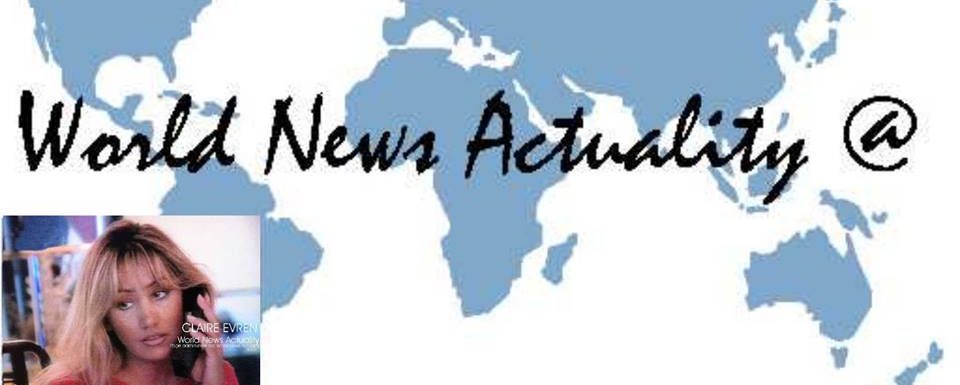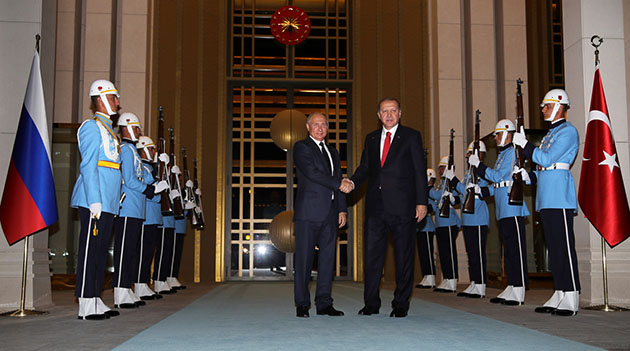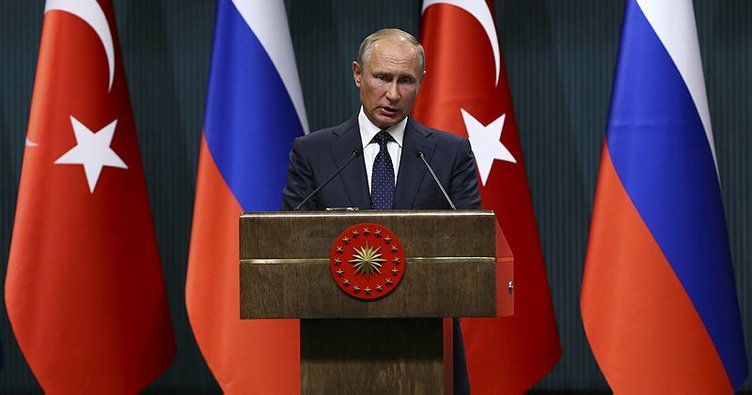World News Actuality Presented By Claire Evren
Following talks in Ankara, the Turkish and Russian presidents said they agreed to closely cooperate on ending Syria’s civil war.
Russian President Vladimir Putin said in the Turkish capital that Moscow and Ankara will work to “deepen coordination” on ending the six-year-old war, adding the “necessary conditions” now existed for the conflict to end.
Recep Tayyip Erdogan, said that Turkey “will continue close cooperation with Russia for reaching a political solution to the crisis in Syria.”
Erdogan said that the pair agreed to “pursue more intensely” the creation of a “de-escalation zone” in Idlib Province, in comments echoed by his Russian counterpart.
“Readiness was confirmed to comply with the final agreements on creating four de-escalation zones, including the biggest of them in Idlib Province,” Putin said.
Russia, Turkey, and Iran earlier this month agreed to create a “de-escalation zone” in Idlib, an area under the control of opposition forces in northern regions. Three other “de-escalation zones” have come into effect in different parts of Syria since July.
Erdogan said after meeting Putin on September 28 that Ankara and Moscow agree that the territorial integrity of both Iraq and neighboring Syria must be preserved.
He added that the September 25 nonbinding referendum in Iraq’s Kurdish region had no legitimacy and that the regional leaders must be prevented from making “bigger mistakes.”
The vote, which was also fiercely opposed by the Baghdad government and much of the international community, as a threat to its national security and fears it will inflame separatism among its own Kurdish population.
However, the Kremlin has not explicitly condemned the referendum
- Turkish President Tayyip Erdogan and Russian President Vladimir Putin meet at the Presidential Palace in Ankara, Turkey
On economic matters, the two presidents said they wanted to see progress in two major projects: the TurkStream gas pipeline from Russia to Turkey and the Akkuyu nuclear power plant being built in Turkey with Russian collaboration.
“We place great importance on the realization of these projects swiftly,” Erdogan said. “We have observed during our talks that there are some disruptions. We will fix them quickly.”
Erdogan said the two states aim to increase their trade turnover to $100 billion a year.
Putin said Russia and Turkey will continue to lower trade barriers both countries erected during a period of soured relations last year after a Turkish fighter jet shot down a Russian warplane on the Syrian border in late 2015.
- World News Actuality By Claire Evren-Russian President Vladimir Putin at the Presidential Complex in Ankara
He said Russia has already lifted most of its restrictions on Turkish agricultural products, resulting in a 58.7 percent surge in imports of Turkish fruits, vegetables, and other farm products in the first half of 2017.
Another sector that has rebounded is tourism, with the number of Russians taking vacations in Turkey increasing elevenfold so far this year to 2.5 million people, Putin said.
Putin said that when the trade restrictions were in place last year, overall trade fell by 32 percent. But with the lifting of many restrictions, so far this year trade has rebounded by 31.5 percent, he said.



